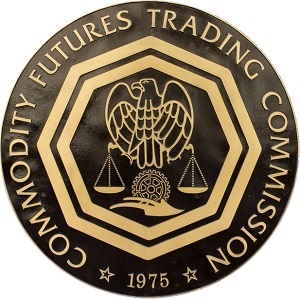Fraud Regulated by the CFTC
 The Commodity Futures Trading Commission, or CFTC, regulates the futures markets, the options markets, and the swaps trading markets, as well as the actors in those markets, with the mission of fostering “open, transparent, competitive, and financially sound markets” to avoid systemic risk and protect market participants.
The Commodity Futures Trading Commission, or CFTC, regulates the futures markets, the options markets, and the swaps trading markets, as well as the actors in those markets, with the mission of fostering “open, transparent, competitive, and financially sound markets” to avoid systemic risk and protect market participants.
The CFTC derives its authority from just one piece of legislation, the Commodity Exchange Act (“CEA”).
The CEA gives the CFTC regulatory authority over the commodity futures markets. These long-standing markets began with trading in agricultural commodities such as wheat, corn, and cotton, and futures in those markets.
Over time, these “designated contract markets,” or “DCMs” have grown to include those for metals commodities such copper, gold, and silver, for fuel commodities such as crude oil, heating oil, gasoline, and also for financial products such as interest rates, stock indexes, and foreign currency.
Following the 2008 financial crisis, the Dodd-Frank Wall Street Reform and Consumer Protection Act explicitly vested the CFTC with jurisdiction over swaps market.
What Does the CFTC Do?
The CFTC regulates a number of different actors and entities, including:
- Designated contract markets
- Swap dealers, execution facilities, and data repositories
- Derivatives clearing organizations
- Futures commission merchants
- Commodity pool operators (CPOs) — entities and individuals that solicit funds and pool them together to trade commodity futures and options. Unless exempted, CPOs must register with the CFTC and follow CFTC regulations, including disclosure obligations. CPOs that wrongly claim to be exempt from registration may face CFTC enforcement action.
- Foreign currency trading (Forex) markets, including markets for spot transactions, swaps, currency options, and futures contracts.
The CFTC exercises its authority in a number of ways, including:
- Regulation of DCMs.
- Review of the terms and conditions of futures or options contracts. Futures and options contract traded on regulated exchanges must be approved by the CFTC.
- Monitoring the markets
- Regulation of and reporting by professionals in the futures, options, and swaps trading markets.
Under the CEA, it is unlawful to:
- Use any means of fraud or deceit in connection with the sale of commodities or futures contracts involving commodities; or
- Manipulate the price of commodities or their futures contracts.
Some financial products are potentially subject to regulation by both the CFTC and SEC. This includes single-securities futures and Bitcoin and other cryptocurrencies.
Contact a Whistleblower Attorney to Discuss Your Case
If you believe you have information about fraud which may lead to a CFTC enforcement action or claim under the CFTC whistleblower reward program, contact our firm to speak with a whistleblower lawyer.




